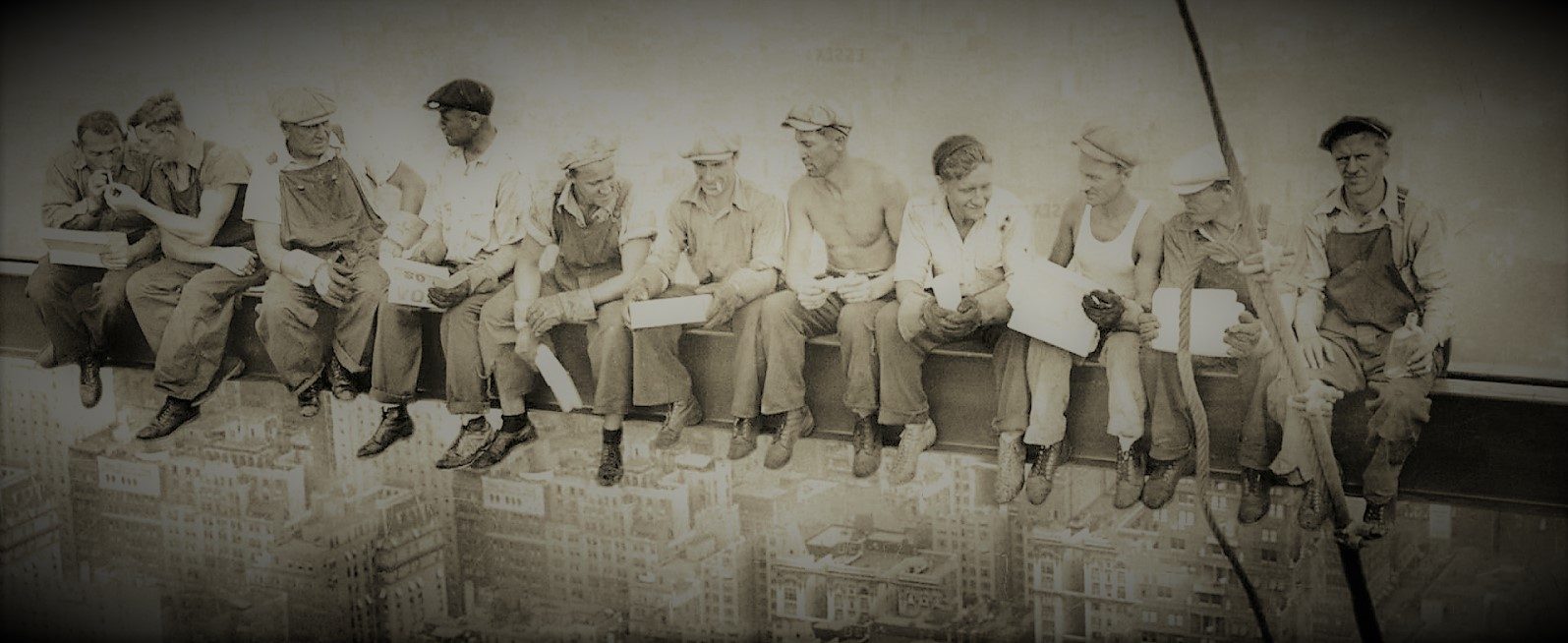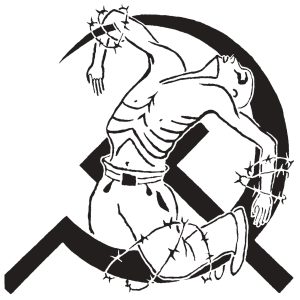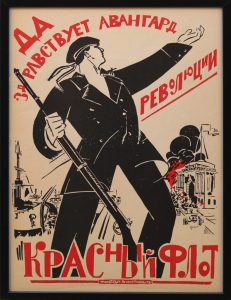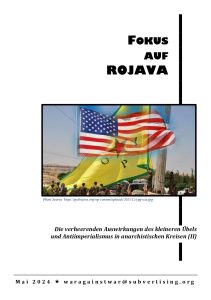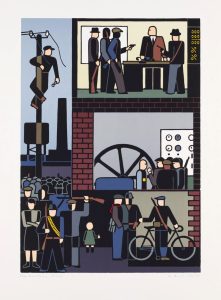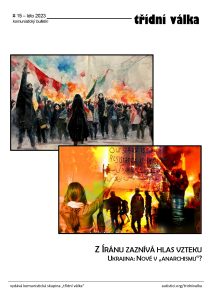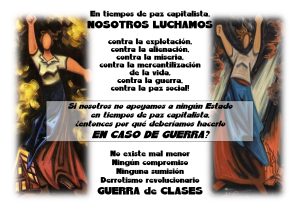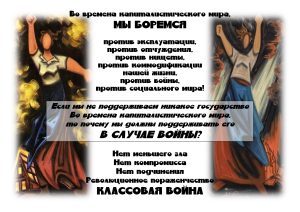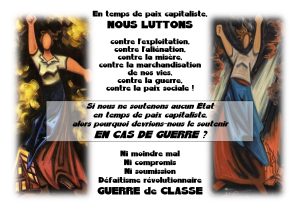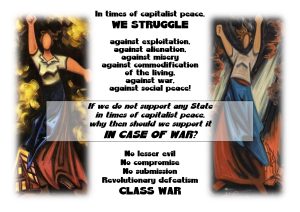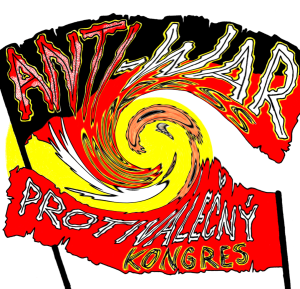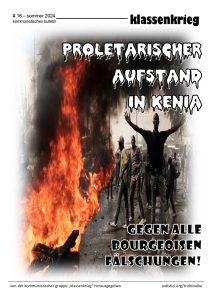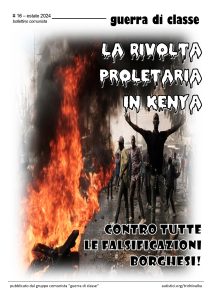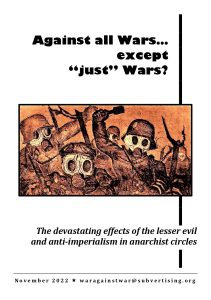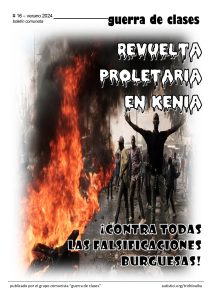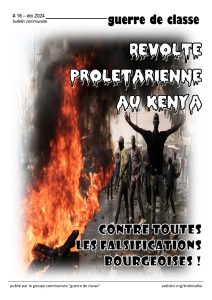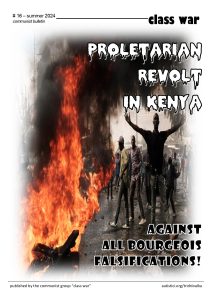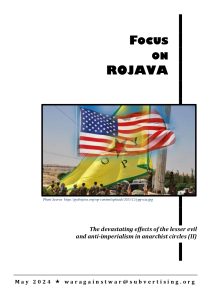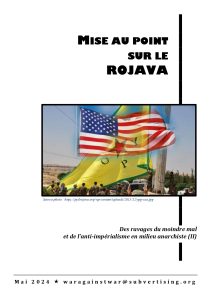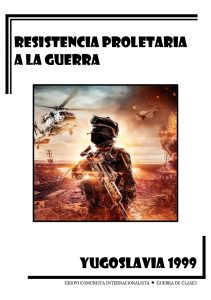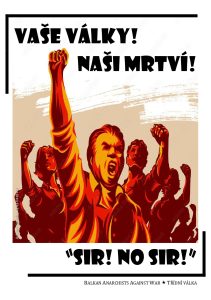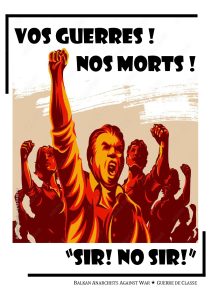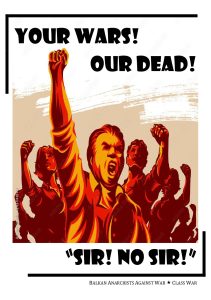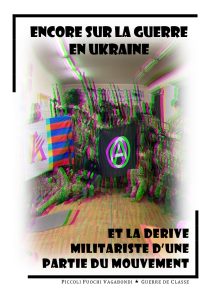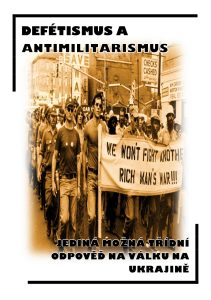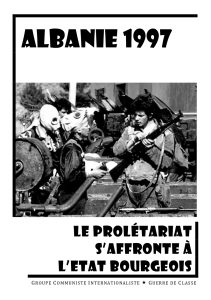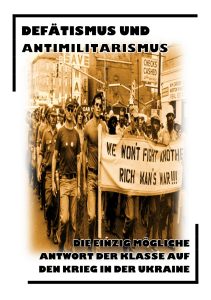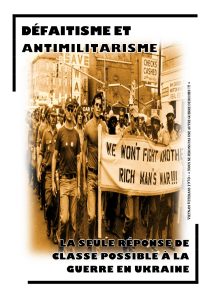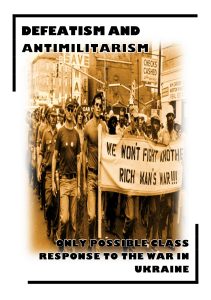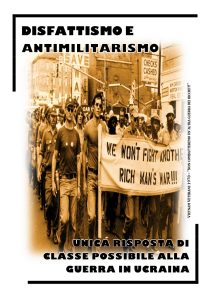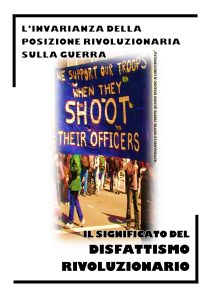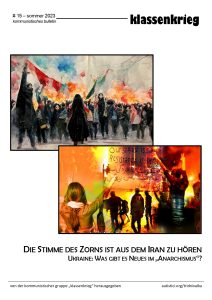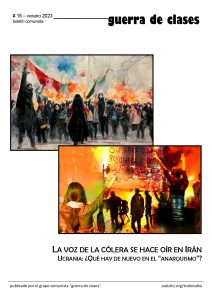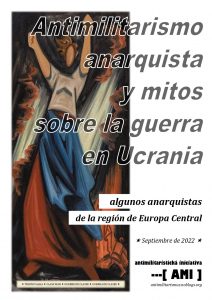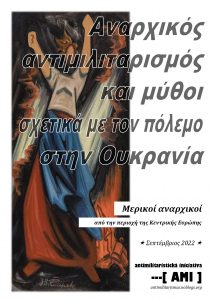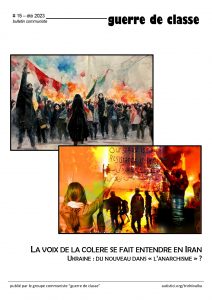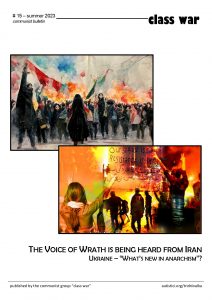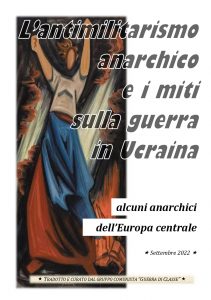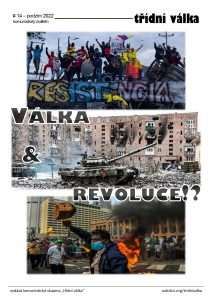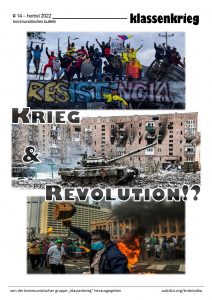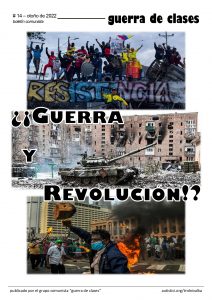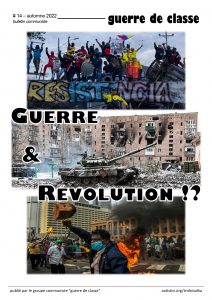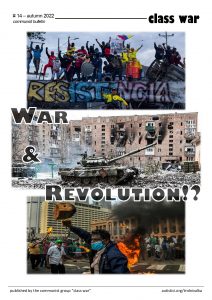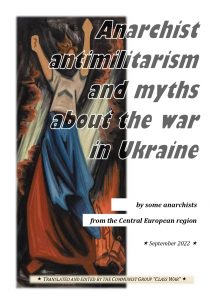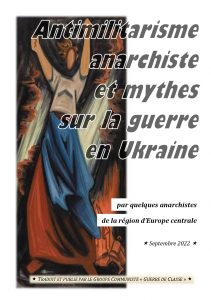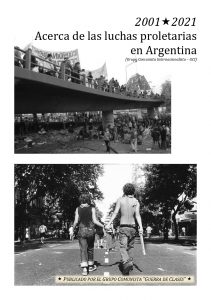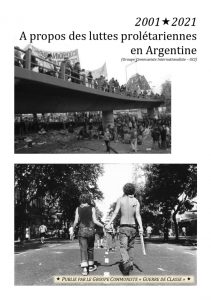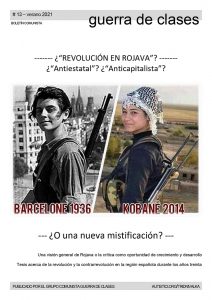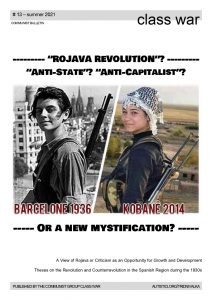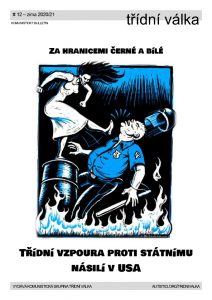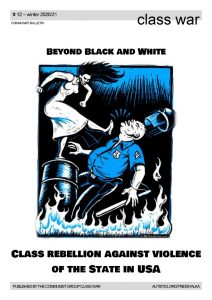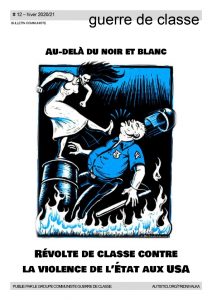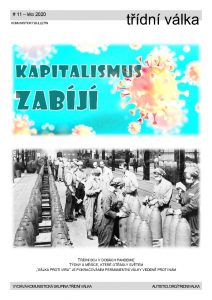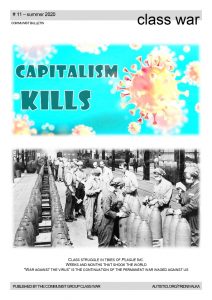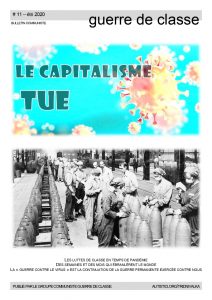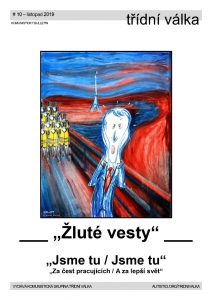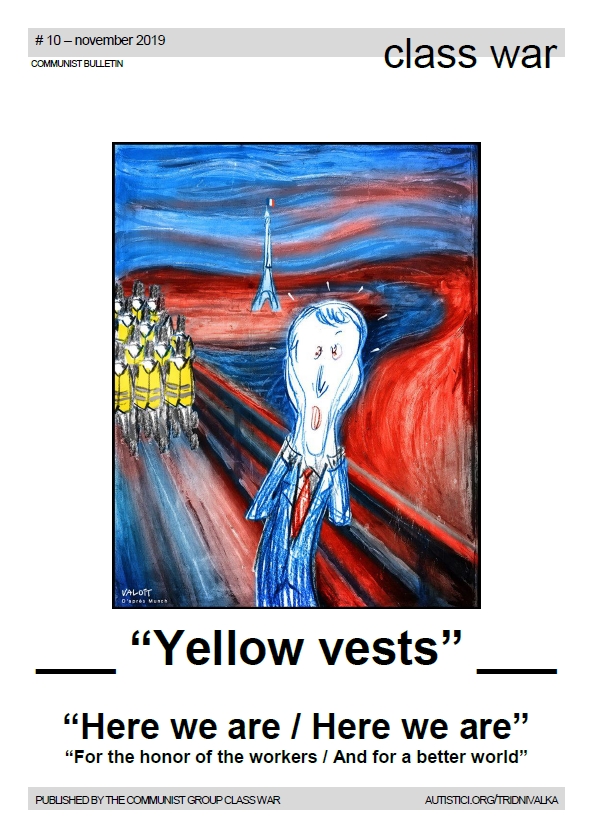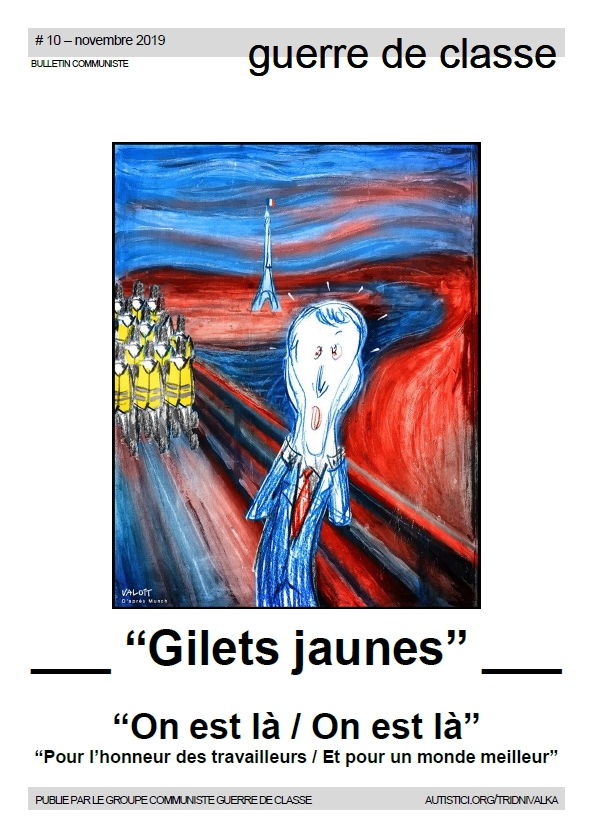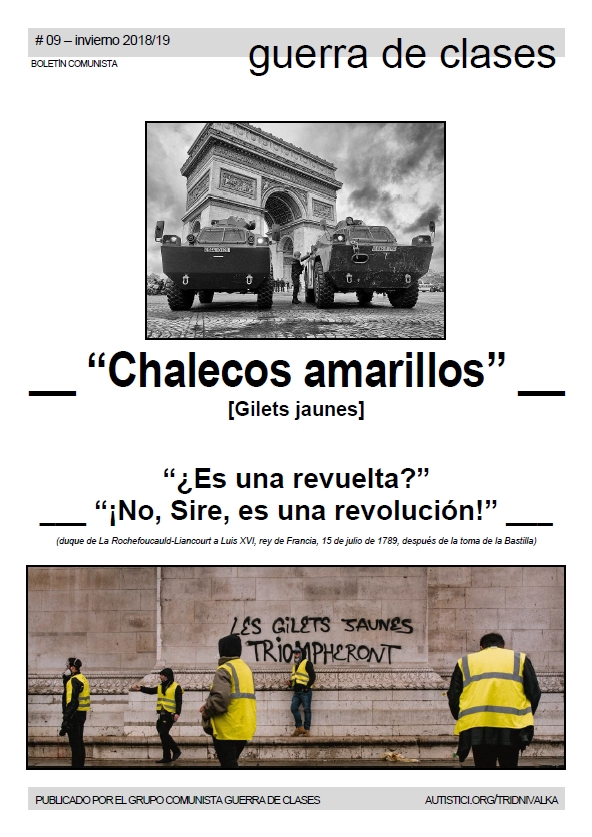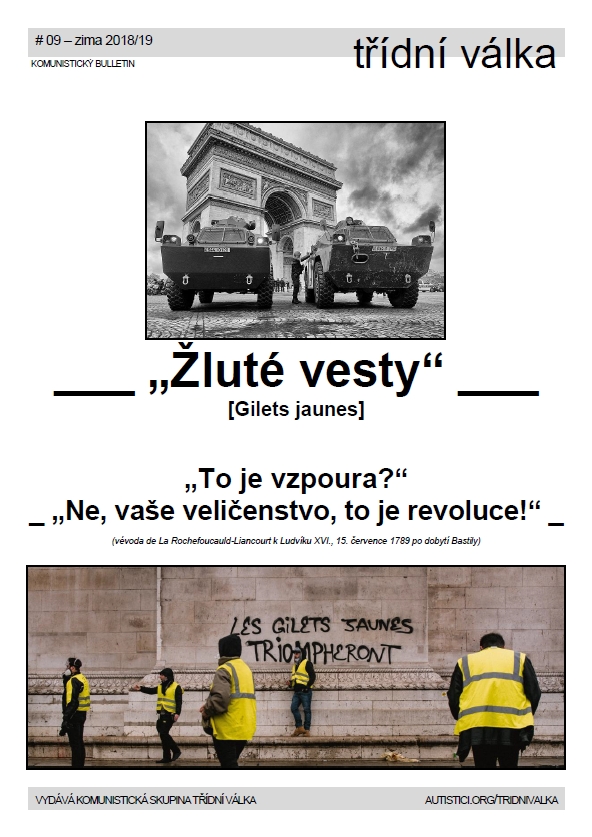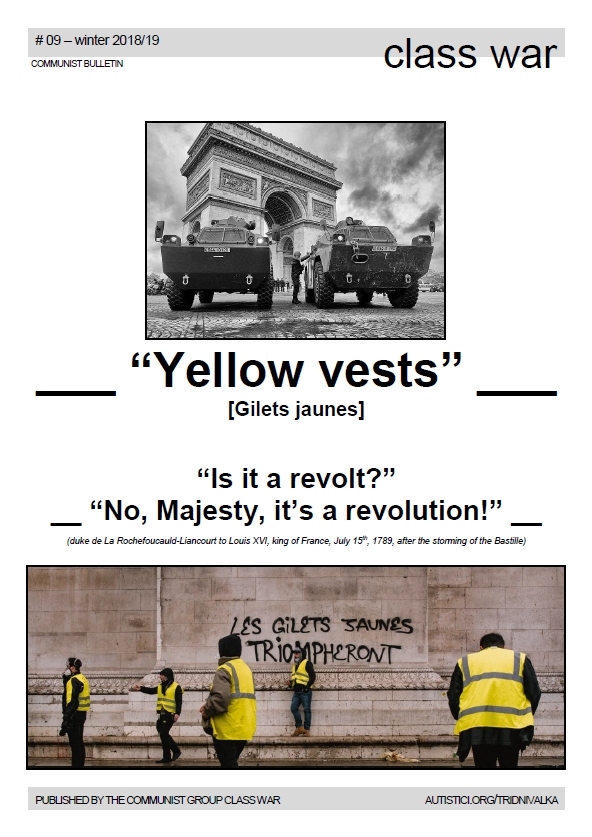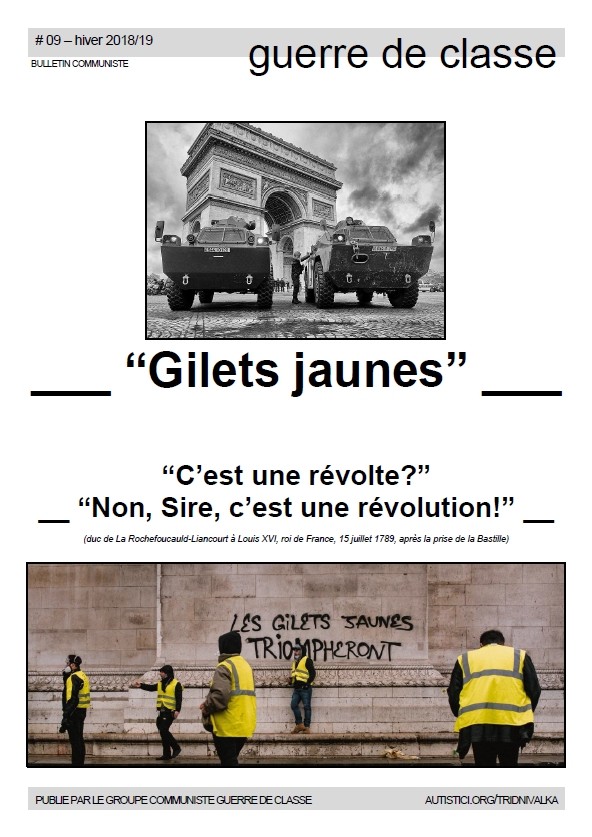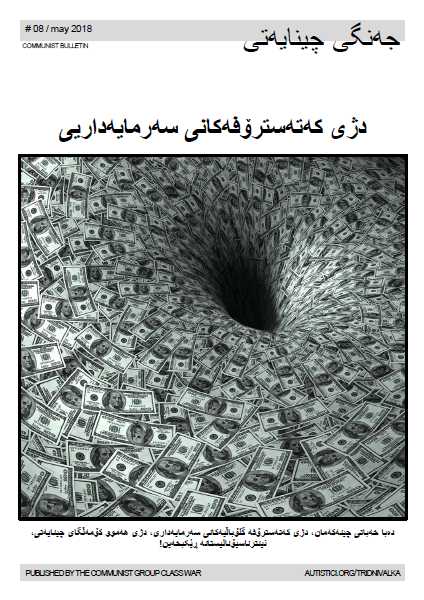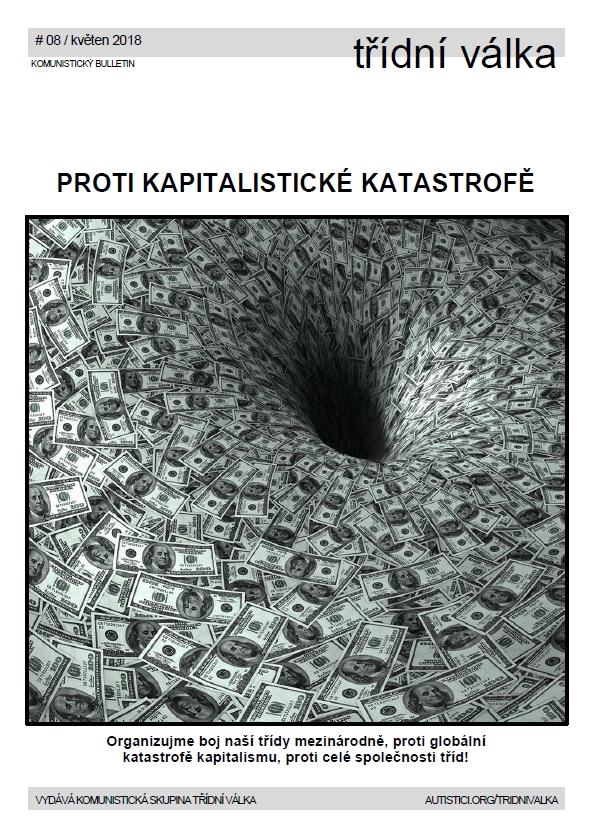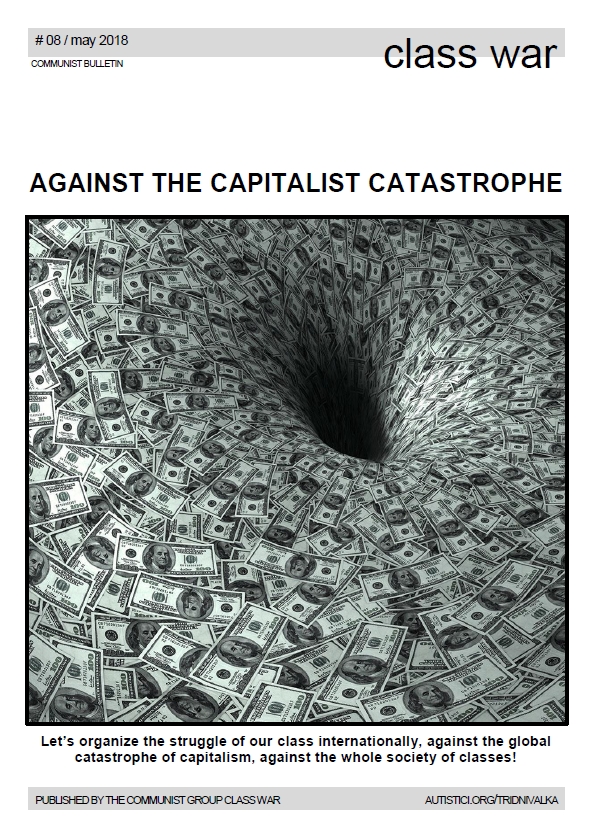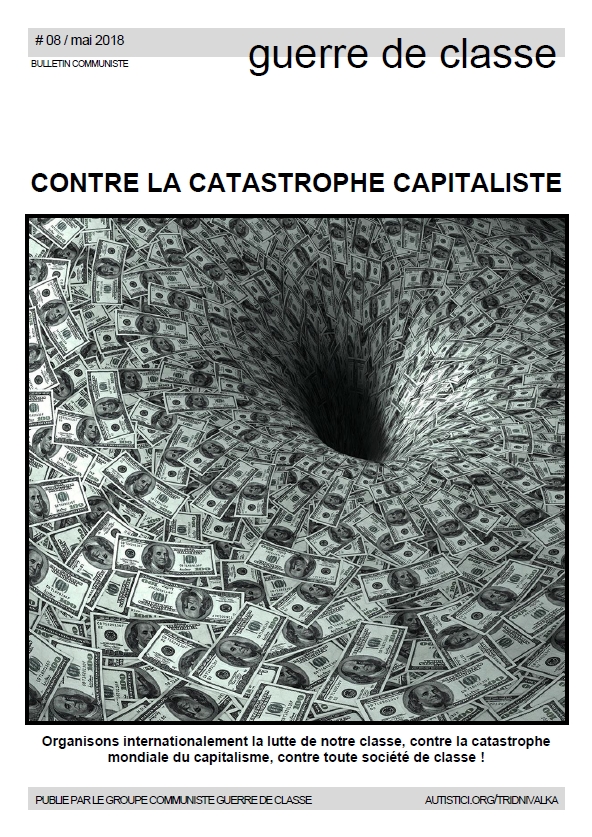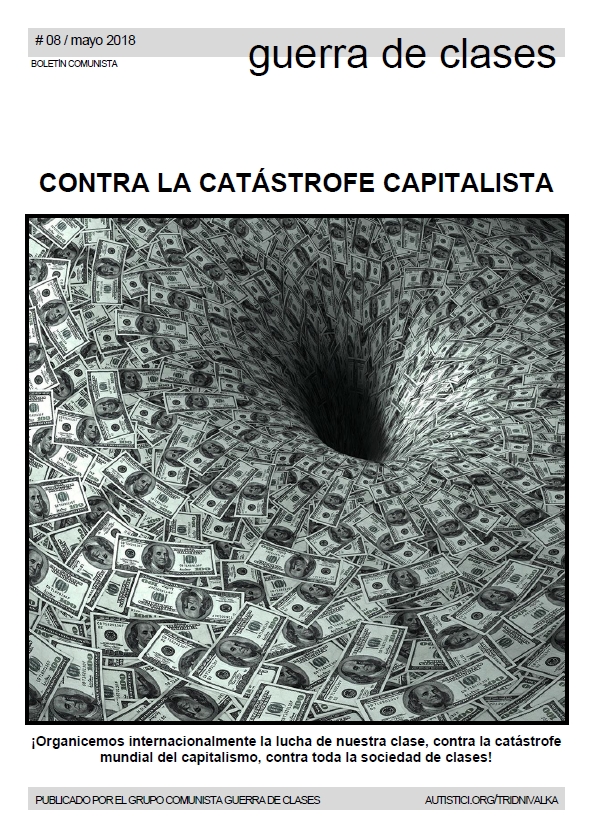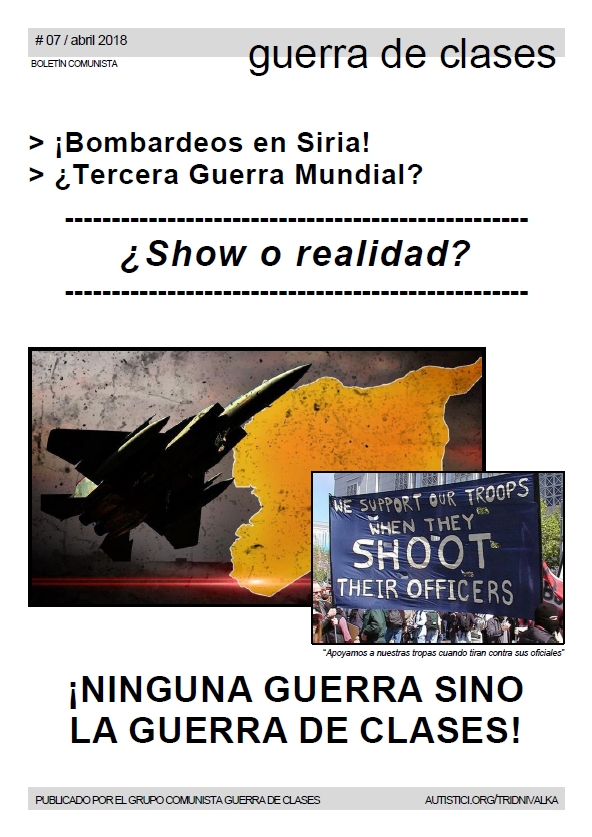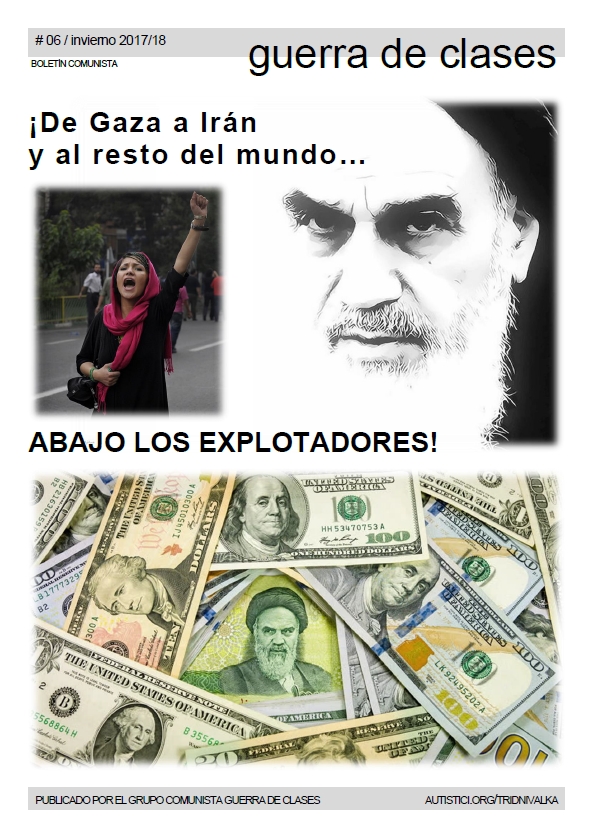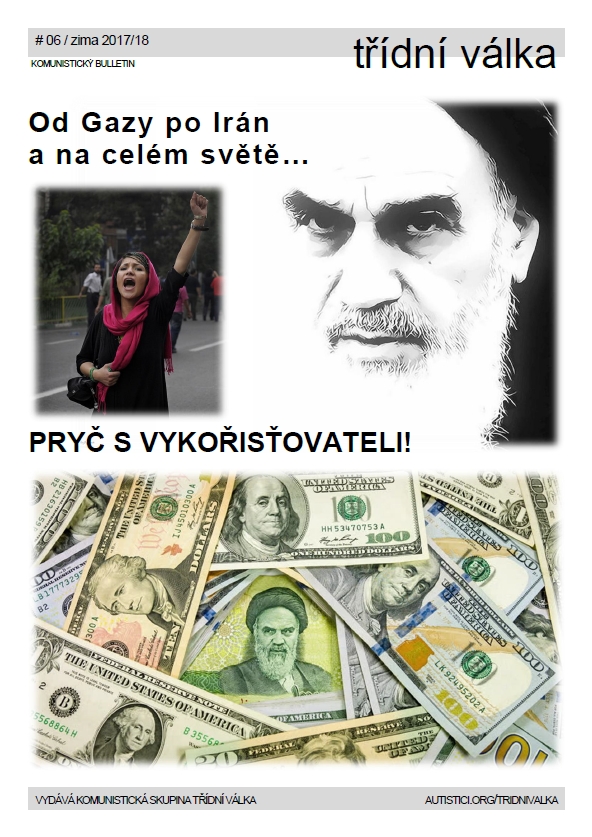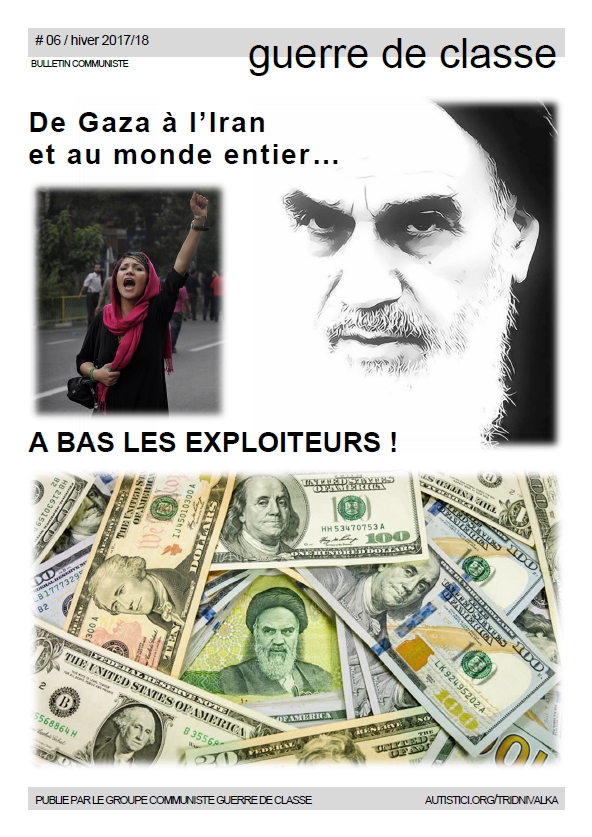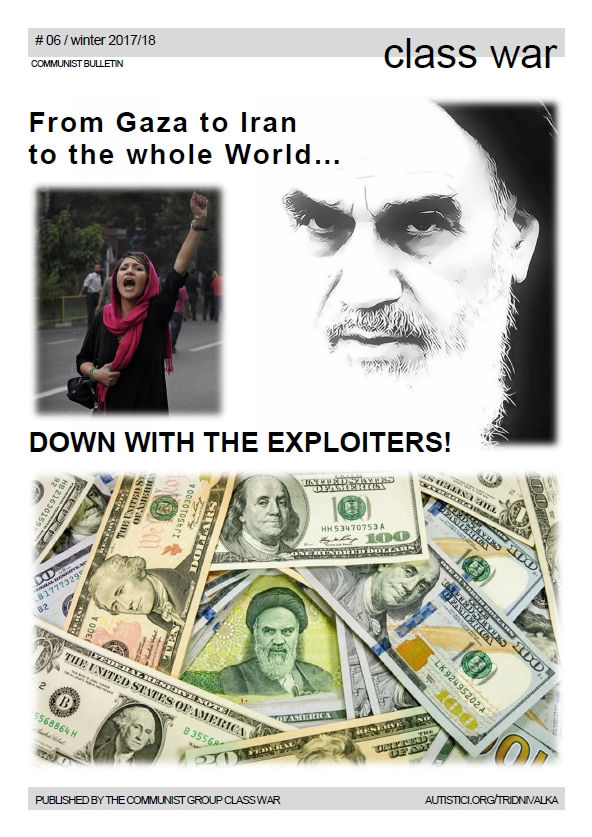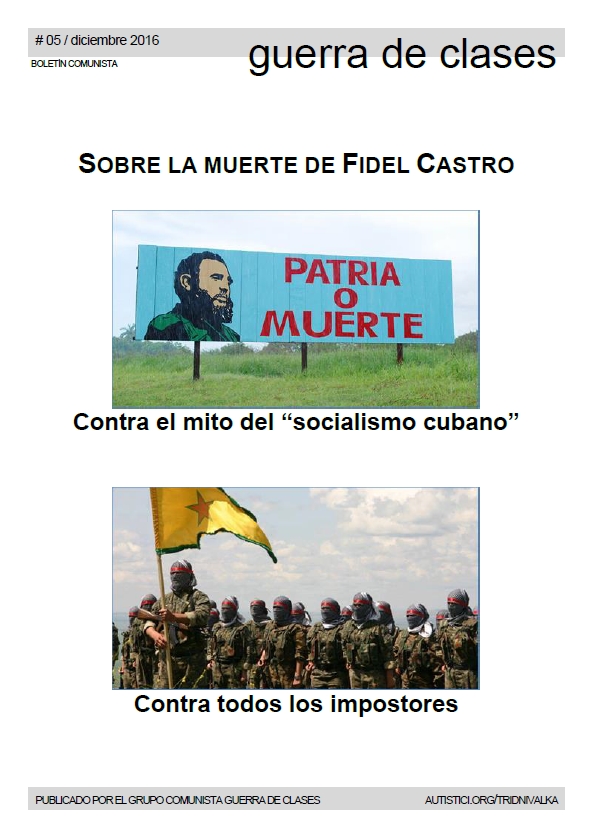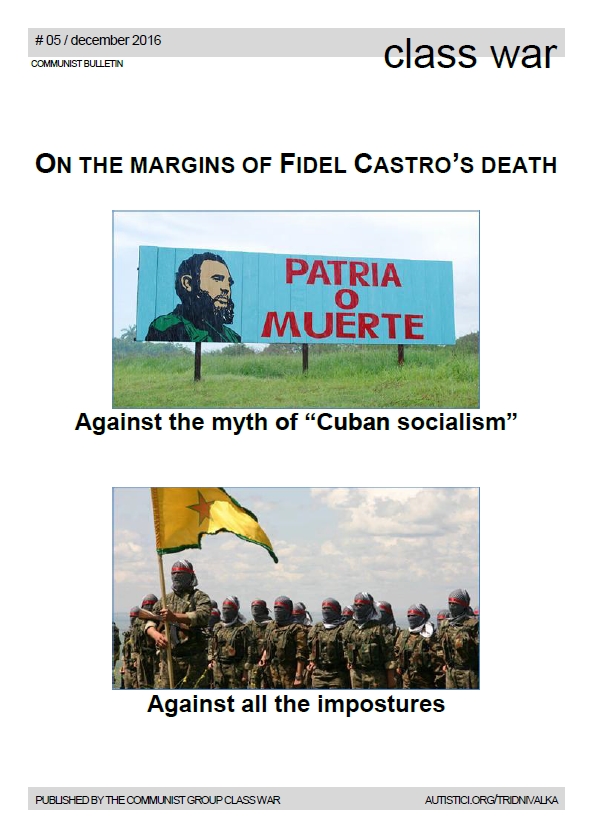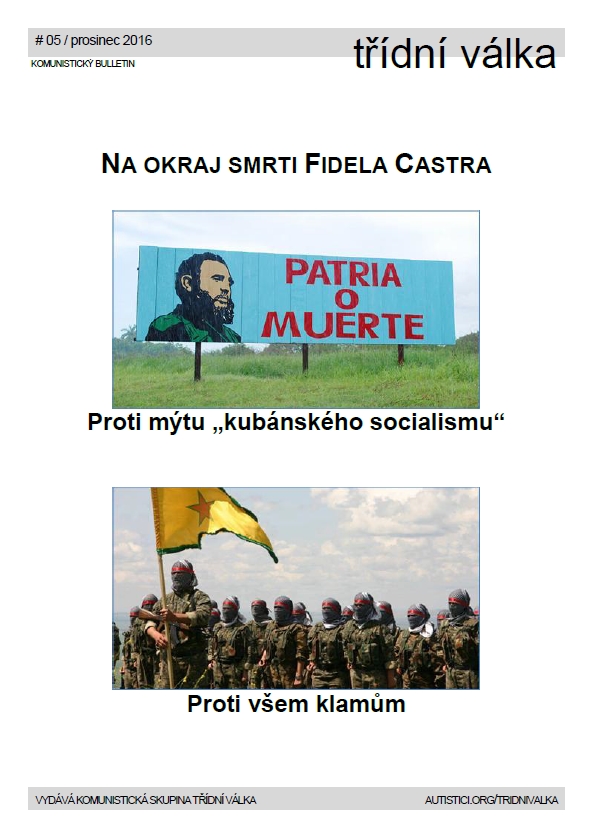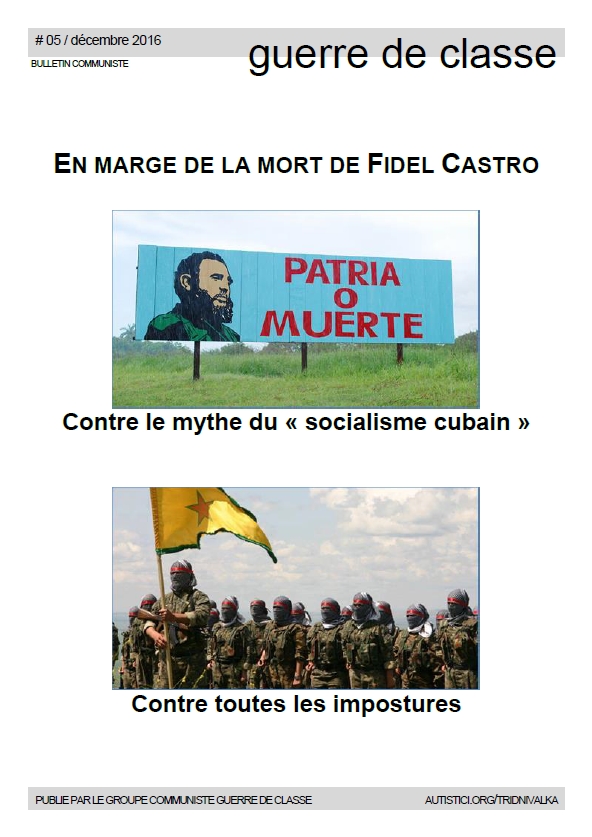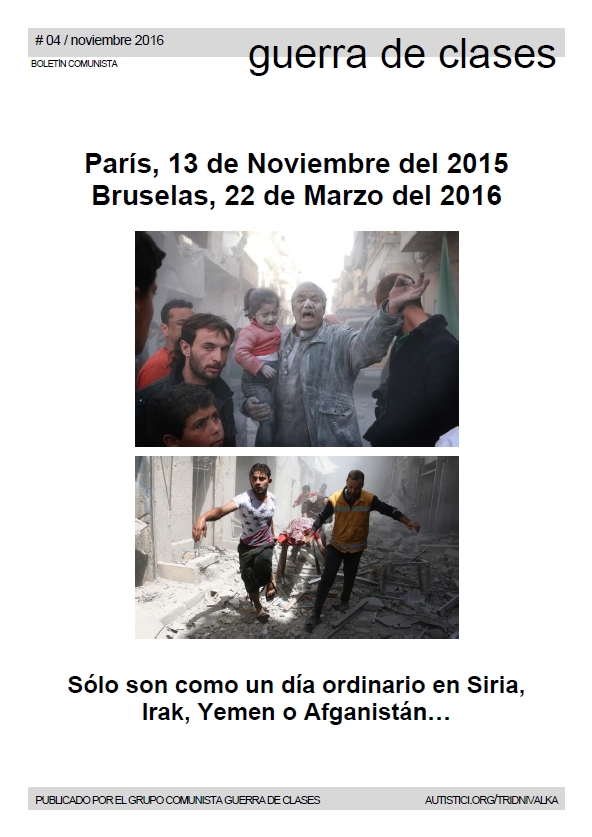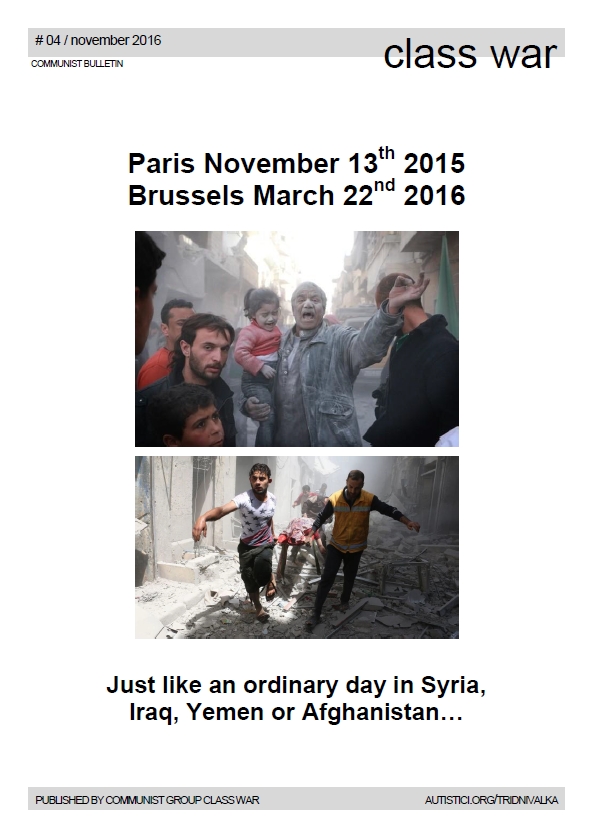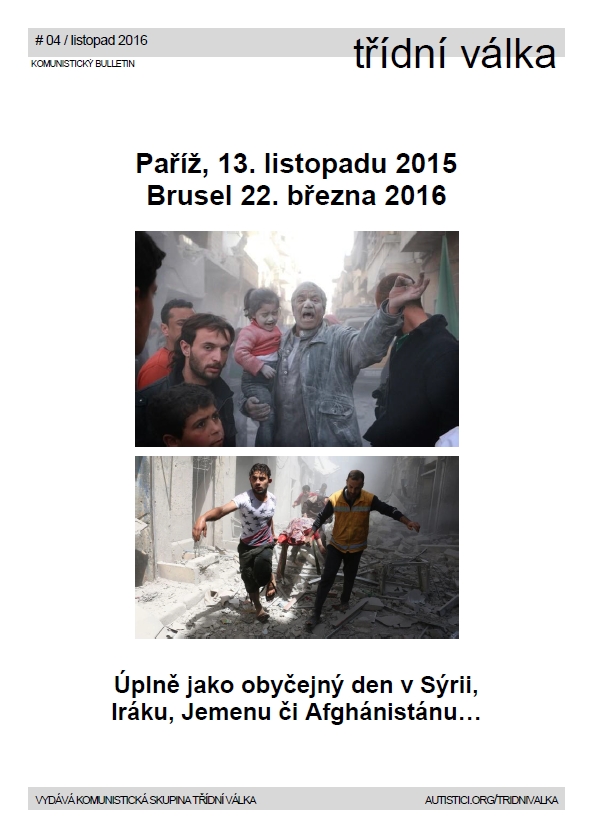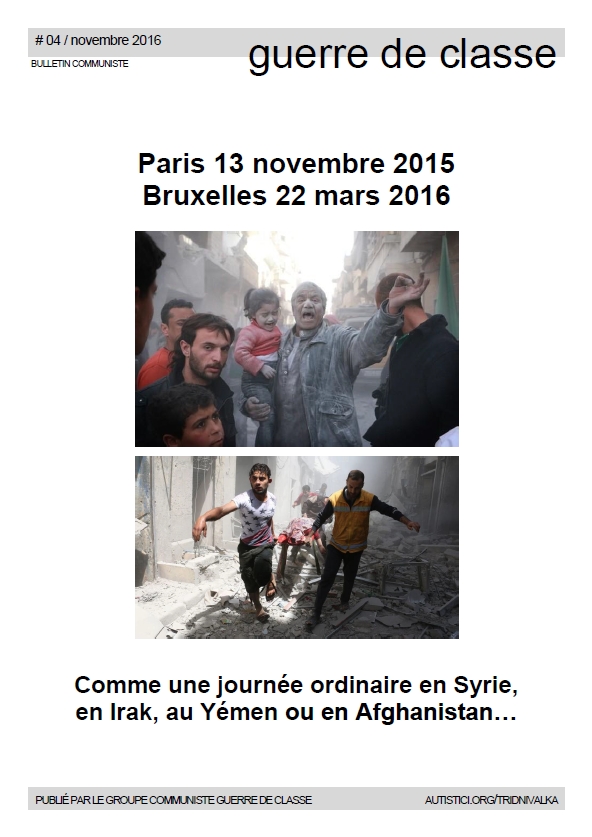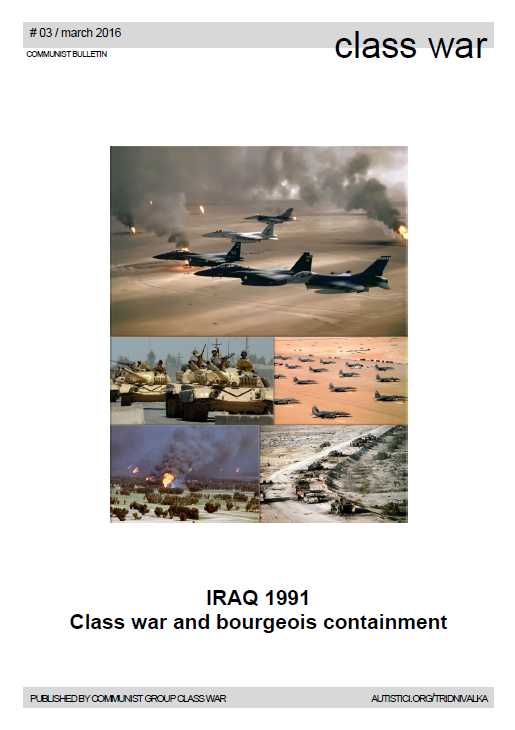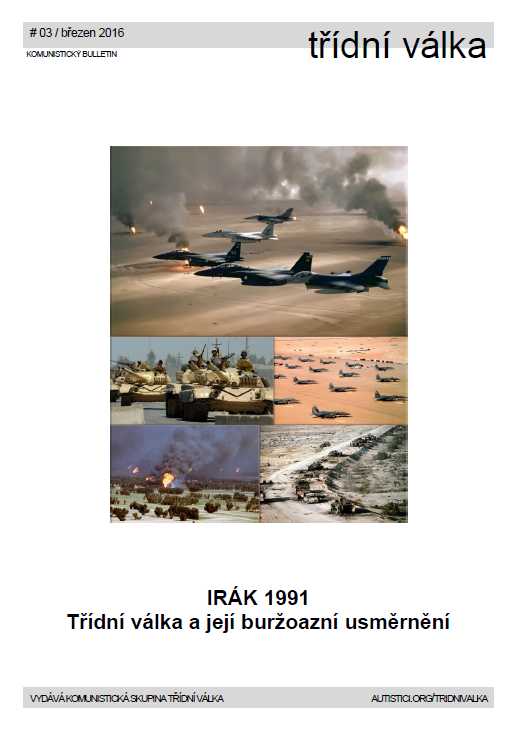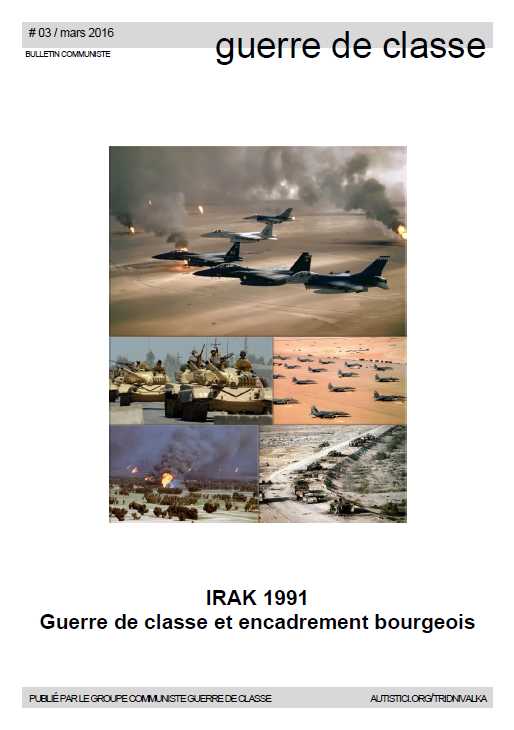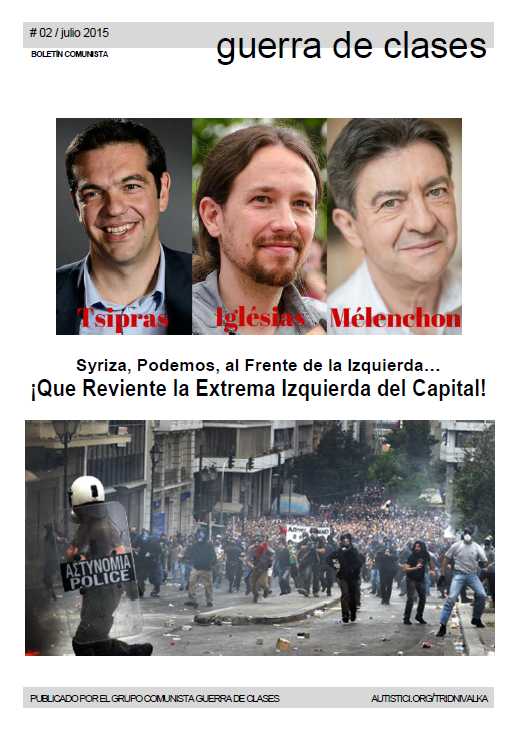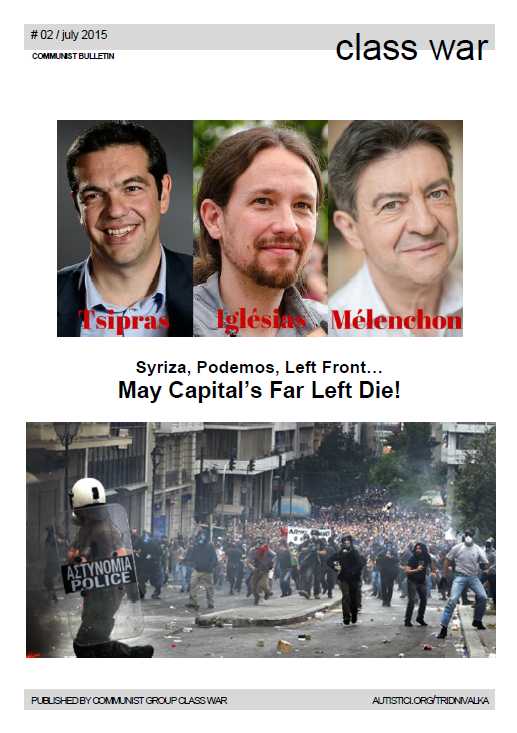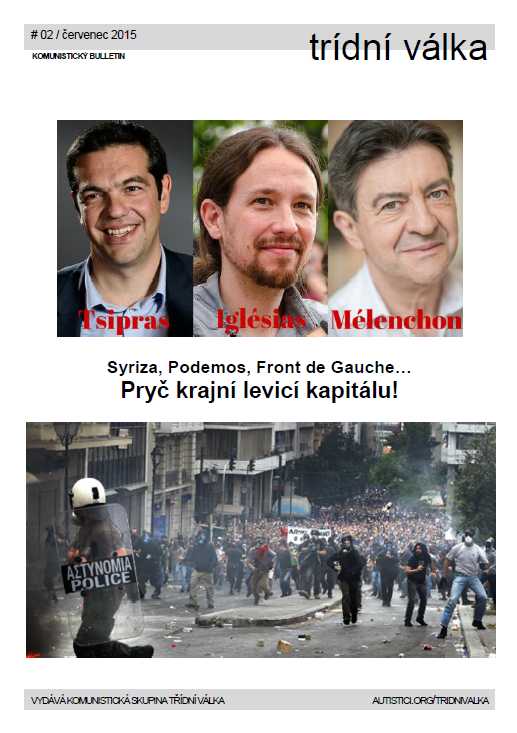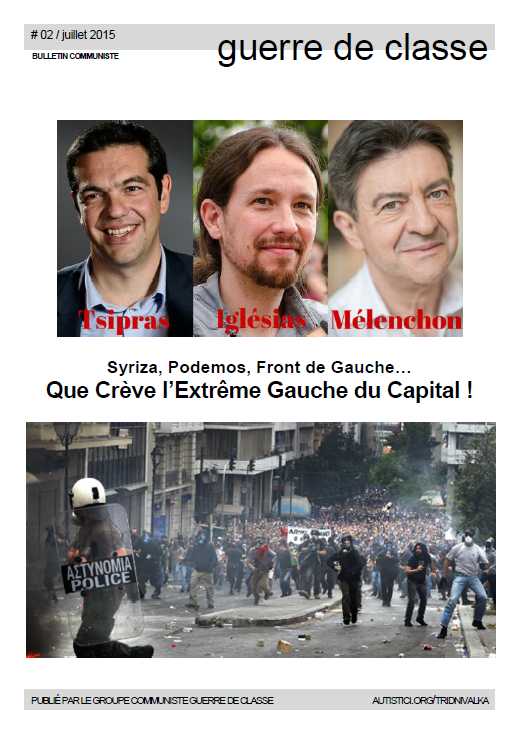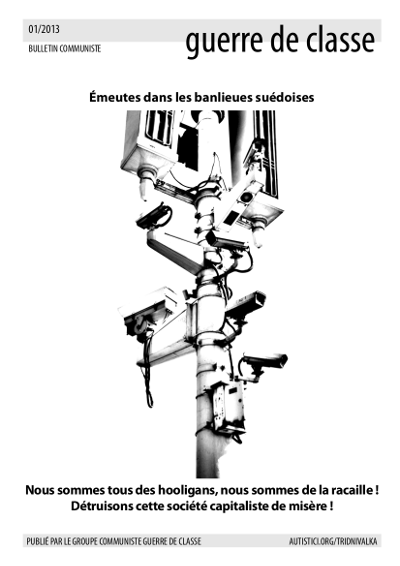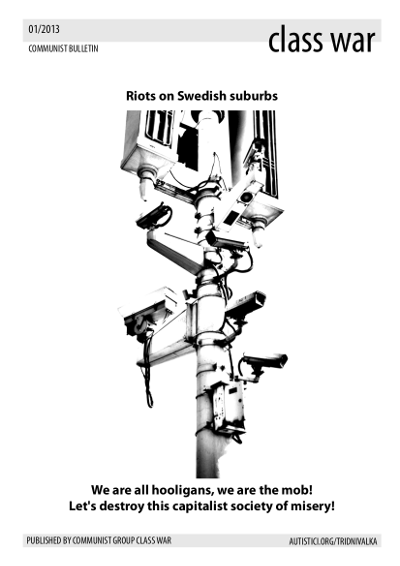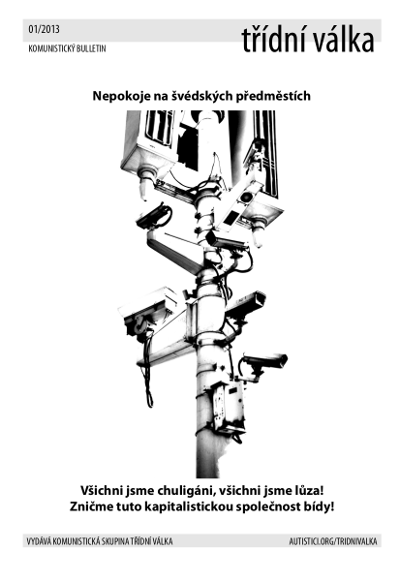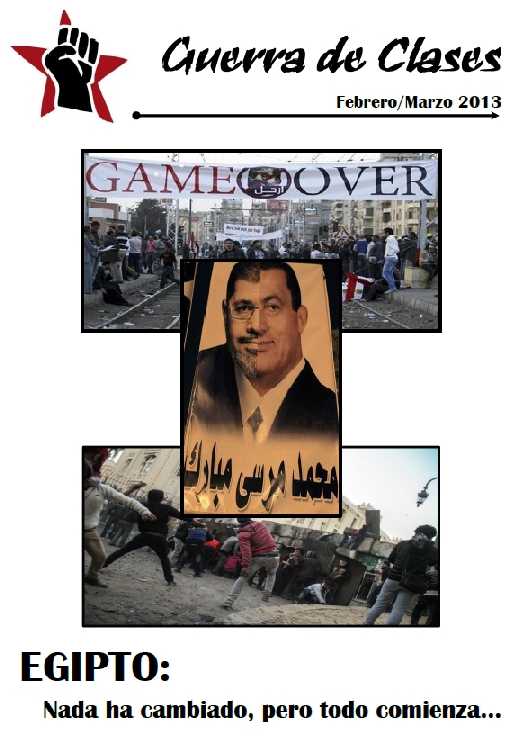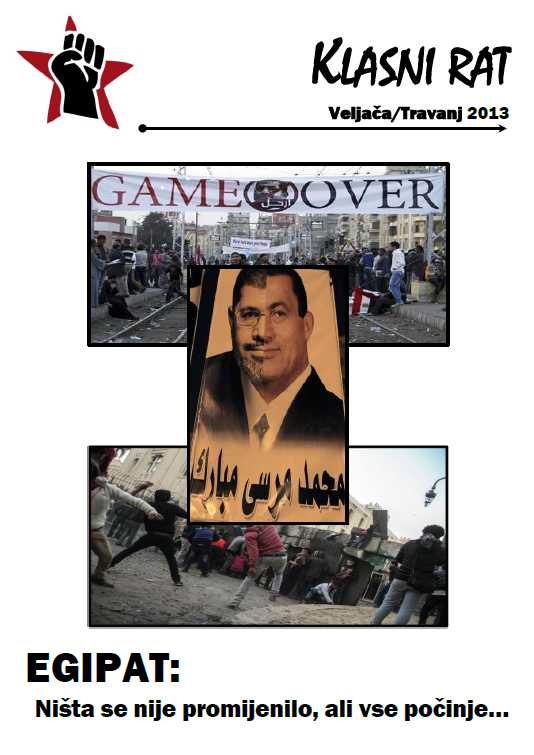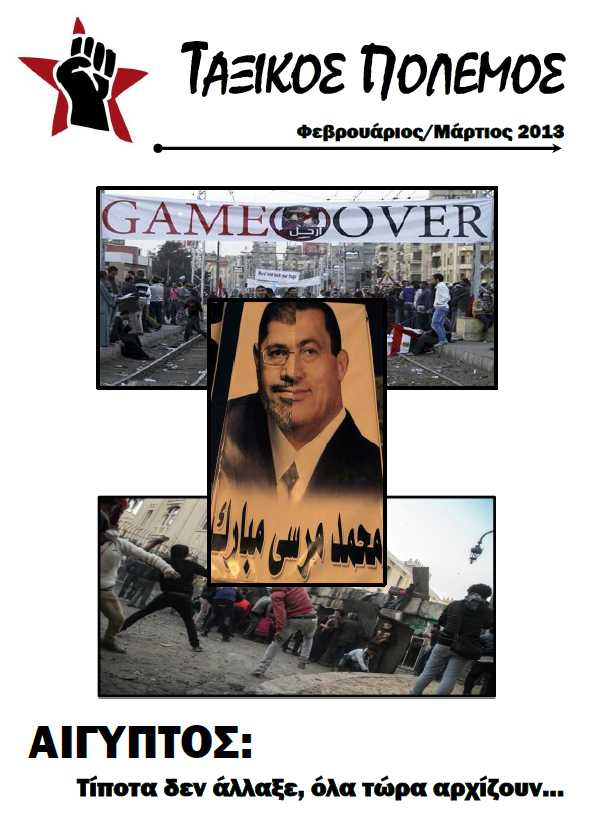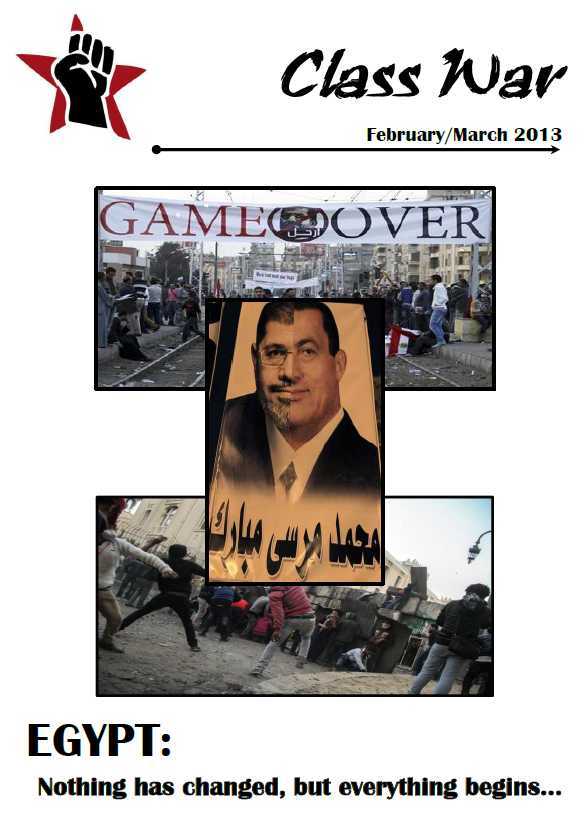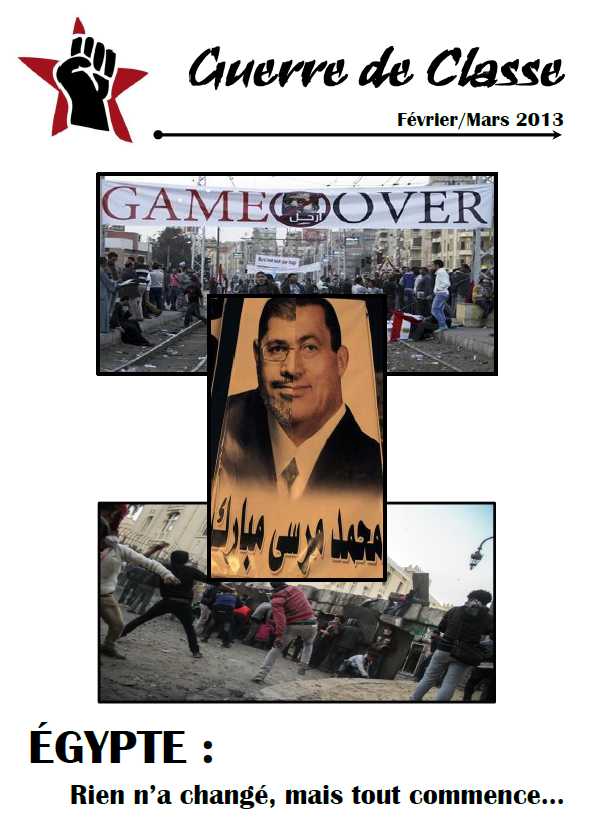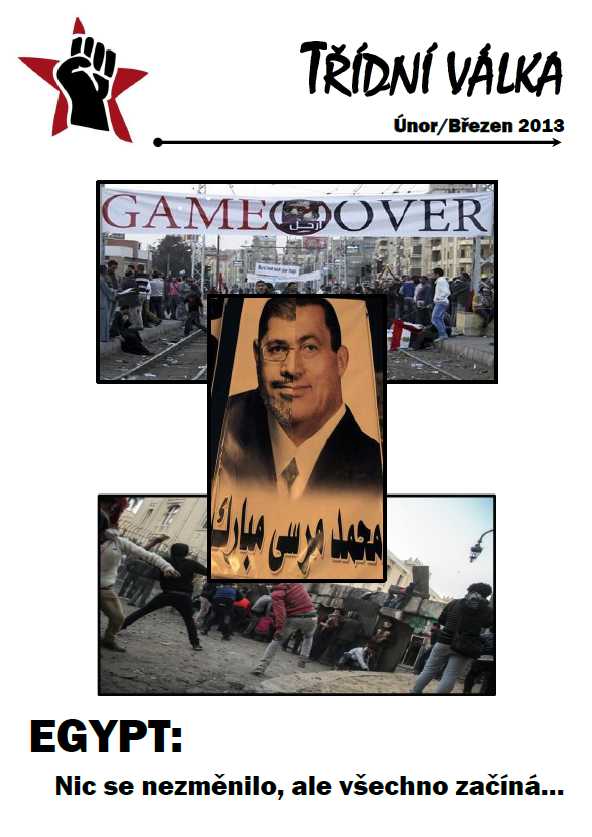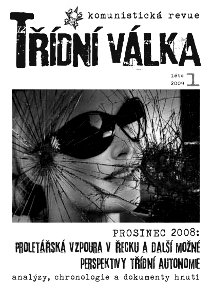 It is only now we publish the following appeal for boycott of World Social Forum that took place in Tunisia in March 2013. But it doesn’t mean that it is too late to do it. The conflict between those who organized and participated to the Forum and those who refused it is nothing else than a materialization of a historical clash between the negation of capitalist world and its reform and therefore its maintaining. The dispute over the Forum is not the first occasion when the proletarian revolt has to face reformists’ attempts to appropriate it, to canalize it and thus to kill it. And it is not the last conflict over this subject either. To clarify the essence of this conflict, this very fundamental basis of it, it is for the authors of the following text, Tunisian group Instances of revolutionary action / Disobedience Movement, a first step on the way to destroy capitalism.
It is only now we publish the following appeal for boycott of World Social Forum that took place in Tunisia in March 2013. But it doesn’t mean that it is too late to do it. The conflict between those who organized and participated to the Forum and those who refused it is nothing else than a materialization of a historical clash between the negation of capitalist world and its reform and therefore its maintaining. The dispute over the Forum is not the first occasion when the proletarian revolt has to face reformists’ attempts to appropriate it, to canalize it and thus to kill it. And it is not the last conflict over this subject either. To clarify the essence of this conflict, this very fundamental basis of it, it is for the authors of the following text, Tunisian group Instances of revolutionary action / Disobedience Movement, a first step on the way to destroy capitalism.
World Social Forum, as they underline, “is nothing but an attempt to convince the victims of the capitalist system that the inherent reason behind the economic crisis are the so-called ‘Neo-Liberalism’, ‘extreme globalization’, ‘financial speculations’ and worsening debt which they suggest calls for the one and only alternative and that is the reform of a system which is the actual source of these ailments. (…) [World Social Forum] is nothing but another attempt to diminish the rage of the billions of individuals revolting against hunger, impoverishment and precariousness chanting but one unique slogan: ‘The people want to fall of the regime’ (…) ‘The people want the fall of capitalism’”. And they continue: “we boycott and oppose this Forum (…) also because we primarily boycott every reform movement whether it came from the right or the left.” Thus they refuse classical and usual critique of the so called “globalization” that considers the right-wing to be the sole culprit of our misery. Because in reality, as well as in all the barracks, it is always “left, right, left, right” that recruiting-officer of army of capital shout on us also in all factories and during all the election rounds and they force us to march in an infernal tempo of goods production and reproduction of this society of misery and death…
Let us nevertheless highlight here three points in the text of the World Social Appeal that should be clarified. The following critique is nevertheless a comrade critique, that is to say a critique sincere and well-intentioned no matter whether it concerns the fact that the authors of this text have chosen a little bit problematic or misleading terminology or whether their contribution reflects an incomplete rupture with bourgeois ideology.
It is first of all the term “pseudo-democratic states”. Without denying differences between models of political administration of bourgeois society, democracy is the very essence of the bourgeois society and not just one of its political forms. Putting (real) democracy (even direct one) in the opposition to pseudo-democracy (or more accurately dictatorship) is incorrect for several reasons. Atomized citizens artificially united in a separate sphere of national politics are in fact a common characteristics of parliamentary, Stalinist, fascist and even Islamite states. Democracy is an organization of bourgeoisie as a class that develops on the basis of social relations of class society. It is because of that that the class struggle is against democracy and against state and it has nothing in common with bourgeois politics, political parties (left or right wing, parliamentary or out of the parliament, legal or illegal), elections, and political putsches. And even an attribute “direct” or “workers” cannot change anything on essentially bourgeois nature of democracy.
Also, whatever political mask bourgeois state puts on, it doesn’t disprove that it is an organisation of ruling class as a force, as a party of order, as a party of dictatorship of capital. State is a social relation of various apparatuses (government, parliament, police, army, bosses, trade unions, political parties, school, etc.) and various ideologies (parliamentarianism, religion, positivism, authoritarianism, etc.). The only real content of bourgeois state is to be a guarantee of preservation of class society, capitalist mode of production, class dominance of bourgeoisie as a whole regardless if its leadership is liberal, conservative or includes “progressive” left-wing or “communist” parties. The slogan “more democracy” (parliamentarianism and its more direct variants), often claimed by capitalist left, has been, not only historically, proven as the most effective form of class dominance – because it is a form of governance with a formal approval of the exploited, that masks class division of society behind equality of vote and thanks to all workers’, socialist, communist parties, trade unions and NGO’s it creates huge burden of bourgeois ideological dominance – but has also proven its internal connection with “direct” dictatorship, given the social contradictions, dynamics of class struggle, transformation of one form to another – democracy, fascism, red “state capitalism” – with a final goal: protection of capitalist dominance and defence against the revolutionary change.
The second point we would like to react to is the reference to “any attempt of self-organization by workers to manage their own resources”. We believe that in the first part of the quote authors mean the very process happening inside the class struggle – i.e. the transformation of individual proletarians-citizens constituting the class in a bourgeois sociological meaning into a class finding a dynamic connection between its current exploitation and future revolutionary transformation of the society. But the second part is more problematic. After the destruction of current capitalist society, means of existence will be managed by the society, by humanity as a whole. Therefore there will be no workers’ administration or workers’ management. Communist transformation of society requires complete reorganization of human life, which contents abolition of classes, thus also of producers and consumers and revolutionary dictatorship against exchange value, because as long as products retain their character of commodity the law of exchange value will not come to an end. If the whole production for needs for living will not be led by needs of humanity as a whole, but it will still be about products of particular association, group, worker’s council, soviet, dealing with questions of particular sectors of production, exchange value, abstract labour will continue to determine direction of the society, and then capitalism as a community of free producers connected by market, will be reconstructed. In this context communism thus, as a historical interest of the whole proletariat, opposes an independent workers’ control, self-management, which as a last bastion of bourgeois society will rebuild bureaucratic apparatus and will oppose totality of communist revolution.
Our last comment refers to the term “people”. Authors use this term to denote common masses of these excluded, oppressed, exploited. But this doesn’t change anything on the fact, that “people” refers to multitude of individuals with their particular interests and mutual competition and that using this concept opens a door to building interclass united fronts. Subject of revolt in Tunisia as well as anywhere else are no “people”, but proletariat as a class in motion, as a collective being that has no property, no status that it could defend inside of this society and thus its historical aspirations are only despotic towards nowadays normality. Hence proletariat’s only interest is to destroy capitalism.
Who are Instances of revolutionary action / Disobedience Movement? On their Facebook profile (https://www.facebook.com/disobey.tn) they say: “We consider ourselves neither anarchists nor Marxists in the exclusive sense of the word, we are not a continuation of any formal ideological current, we proceed only from our critical grasping of revolutionary heritage and lessons drawn from failures of previous revolutionary attempts. We do not consider ourselves as an intellectual movement, but as a consequence of experience made by the comrades of our group together with revolted masses in our country as well as in other countries. What makes us different from parties and other political currents is not the fact that we reckon ourselves as the most revolutionary, ‘theoretically pure’ or the most faithful followers of any leader or a sacred text. What makes us different is the fact that we contribute to the struggle of the oppressed class not for taking the power, but for destroying the society based on this power.”
The World Social Appeal was published on: http://appelsm.wordpress.com/appelsm-eng.pdf
Czech translation made by Class War
